Impact Report 2021 Staying Connected in a Changing World

Foreword from Our
President and CEO
Video message from President and CEO Andrew Sullivan introducing the Internet Society’s 2021 Impact Report.
“We cannot now
Andrew Sullivan President and CEO of Internet Society
doubt, if we ever
could, the importance
of an open, globally
connected, secure,
and trustworthy Internet.”
There’s been a seismic shift in how
the world uses the Internet.
For many, the Internet has become the foundation of our lives, and we rely upon it without giving much thought to what makes it work or who makes it possible.
Its stability gives us stability, allowing people on nearly every continent to move seamlessly between their offline and online lives.
And yet, billions of people must navigate this seismic shift without trusted, reliable Internet access.
How can we make sure everyone can access basics: healthcare, work, human connection? And who is advocating for communities who find themselves on the wrong side of this digital divide?
Fueled by a new sense of urgency, in 2021 we created a roadmap to address these questions. It outlined how, with our global community, we can grow and strengthen the Internet for future generations: an Internet that is open, globally connected, secure, and trustworthy. This impact report is our word to you that we haven’t veered from this path.
The world is shifting.
We cannot leave anyone behind.
Growing the Internet
There remains a troubling pattern of digital divides. Globally, approximately three billion people are offline, with people in developing and least-developed countries far more likely to be offline than those in developed countries. These divides are also widening between rural and urban areas, along income, gender, and ethnic lines, and for people with disabilities.
In areas with access, inadequate local infrastructure can make the Internet slow and costly, essentially putting it out of reach for many people, while Internet shutdowns can put entire countries in the dark.
Around the world, in 2021 we approached these deepening divides with community-driven and advocacy efforts.
Working in close collaboration with local champions, we built and expanded 33
community networks, empowering communities in Africa, Asia, the Caribbean, Europe,
and North and South America to create their own Internet connections.
To help communities build the right skills, policies, and resources for networks to thrive, we funded more than 300 scholarships for the 2021 Inter-American Telecommunication Commission (CITEL) course on building wireless community networks in Latin America and the Caribbean, empowering a new generation to create connections with and for their communities.

In Zimbabwe
We worked with national operator TELONE to establish the Murambinda community network. This helped inform changes to Zimbabwean regulation to allow the use of 2.4 and 5 GHz spectrum for rural broadband connectivity.
In Kenya
After we advocated with the Association for Progressive Communications, the Communications Authority of Kenya drafted a Licensing and Shared Spectrum Framework for Community Networks, which initiated a review of regulatory fees.

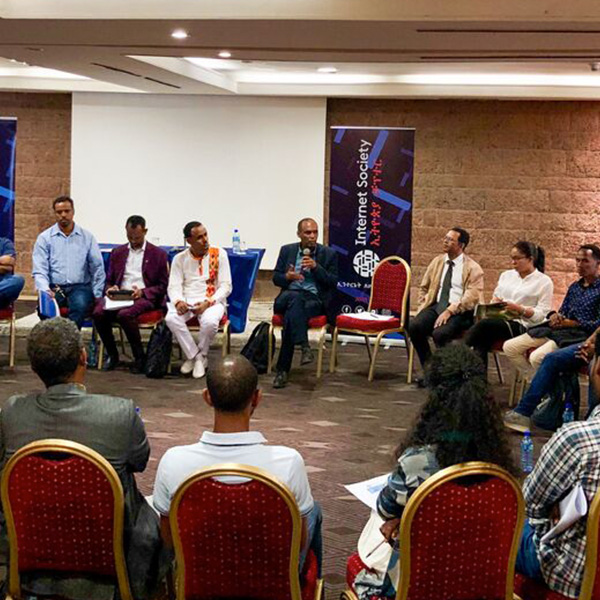
In Ethiopia
We provided comments on Ethiopian Communications Authority’s draft directives for the telecoms market. This resulted in the authority changing its draft to allow community networks.
In Papua New Guinea
We worked with the regulator to establish the island’s first community network, which was funded using the government’s Universal Access and Services Fund. As a result, the regulator included community networks in its 2022 project proposals for the fund, opening new doors for financing.
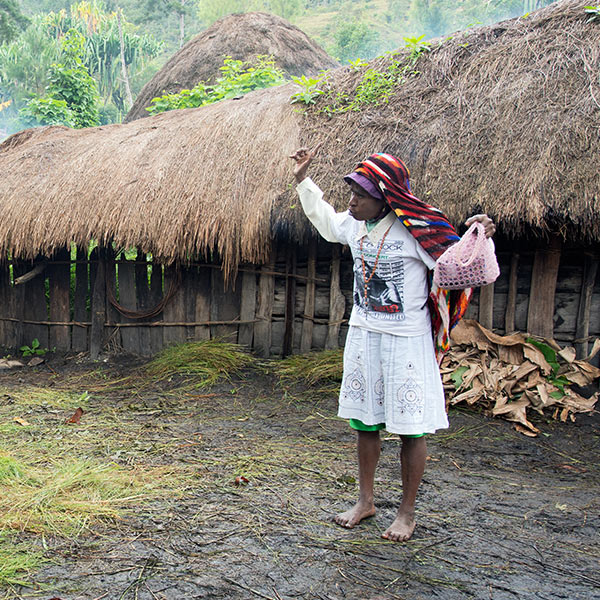
Spotlight Story
Regulatory Changes Open the Door for First Community Network in Ethiopia
The Internet Society led a series of technical discussions with the Ethiopian Communications Authority (ECA) to share international experiences of community networks, including in Kenya and Zimbabwe. Preparations are now underway for a new community network to bring Internet access to close to 5,000 people in the unserved rural community of Abichikili and two nearby towns in northwestern Ethiopia.
We also helped Ethiopia’s Ministry of Innovation and Technology implement its new Digital Transformation Strategy, approved in 2021, which seeks to build Internet infrastructure and expand community networks, establish connectivity in rural areas, strengthen Internet governance, and improve digital services.
We don’t just want to deploy the Internet, we want to make sure people can use it for development. We want agriculture to be supported by the Internet so their farming can become more modern. There is immense importance to this, for access to information, education, agriculture, and health benefits.
Tesfa Tegegne Director of Bahir Dar University STEM Incubation Center and the technical head of the community network project in Abichikili
Making the Most of Spectrum
Access to spectrum, which allows people to transmit data via radio waves, is key to empowering communities to make their own connections. Advocating alongside organizations like the Dynamic Spectrum Alliance, we continued urging countries to increase the amount of available licensed spectrum, lower its cost, and free the use of unlicensed spectrum for Wi-Fi solutions.
In 2021, 8 countries opened spectrum space to Wi-Fi:
Brazil, Canada, Chile, Colombia, Costa Rica, Guatemala, Honduras, and Peru. There are ongoing consultations in Argentina and Mexico to make spectrum available to community networks.
To address the estimated 7 in 10 residents of rural tribal lands in the United States who lack access to fixed, high-capacity, affordable broadband, we backed training, funding, and advocacy efforts to empower these tribal communities to access free spectrum offered by the Federal Communications Commission under a special license. So far, at least 200 tribes have licenses, and several community networks are being planned, built, or expanded.
Spotlight Story
Spectrum Access Helps One Tribal Community Weather Emergencies
In July 2021, we hosted the hands-on Tribal Broadband Bootcamp. The week-long event focused on building community networks for tribes who had received free spectrum through the FCC.
After receiving its spectrum license in March of 2021, the Yurok Tribe built a solar-powered wireless tower in the village of Requa, equipping it with fire and weather cameras.
By the end of the year, the network had grown nearly 50 percent, reaching 250 homes. The Yurok Tribe’s ultimate goal is to reach all 921 addresses.
[The Internet Society has] given us resources and connected us with other tribal communities. But they support us to solve our problems ourselves. They just want to know how they can help.
Jessica Engle Tribal Broadband Bootcamp attendee
Going Above and Beyond Access
Online traffic continued to grow in 2021, pushing Internet infrastructure and capacity close to its limits.
60%
Increase seen by some local
networks during peak hours
29%
Increase in global
bandwidth
285x
Data consumption
from 2011 to 2021
We need robust infrastructure to support the Internet’s growth—during times of crisis and periods of relative calm.
Internet exchange points (IXPs) are part of healthy Internet infrastructure. By keeping traffic local, they make the Internet faster, cheaper, and more reliable.
Launched 6 New Internet Exchange Points
Strengthened 20 Existing Exchanges By donating equipment and providing technical training
Spotlight Story
Boosting Internet Exchange across the Americas
Internet resilience in the face of natural disasters has been a major driving force for Haiti’s IXP. With funding from the Internet Society and other organizations, Haiti’s IXP now has additional servers, management software, and automation tools, making the Internet in Haiti even more resilient.
In Panama, we worked to strengthen the country’s InteRed IXP. In 2021, the donation of key equipment and training by the Internet Society helped reinvigorate the IXP, driving traffic and attracting new members.
In Bolivia, a similar story unfolded. In the years since its launch in 2013, PIT Bolivia’s IXP experienced stagnation. Today, PIT Bolivia has doubled its traffic every six months—rising from 1.4 Gbps in February 2020 to 13 Gbps in November 2021. In support of this effort, the Internet Society donated switches, enabling PIT Bolivia to double its capacity, and provided Mutually Agreed Norms for Routing Security (MANRS) training to help secure Internet routing. These improvements have helped boost traffic, membership, and performance, reducing latency from 600–700 milliseconds to 11.
The Internet Society is like our angel. It is a regional articulator, enabling this type of project to work.
Carlos Sanabria PIT Bolivia IXP’s general manager
Understanding the Internet and Its
Impact on Our Lives
We can’t address the issues facing the Internet if we don’t have strong data to guide our work. The Internet Society Pulse platform curates data from trusted sources to provide a clearer picture of the health, availability, and evolution of the global Internet.
Internet Society Pulse
21
Added More Data
by collaborating with 21
new data partners
49
Recorded 49 government-mandated
Internet shutdowns:
- Totaled over 1,076 days of disruption
- 17 full national shutdowns
- 26 regional disruptions
- 6 service limitations
2
Added 2 New Focus Areas
Resilience and Centralization
Spotlight Story
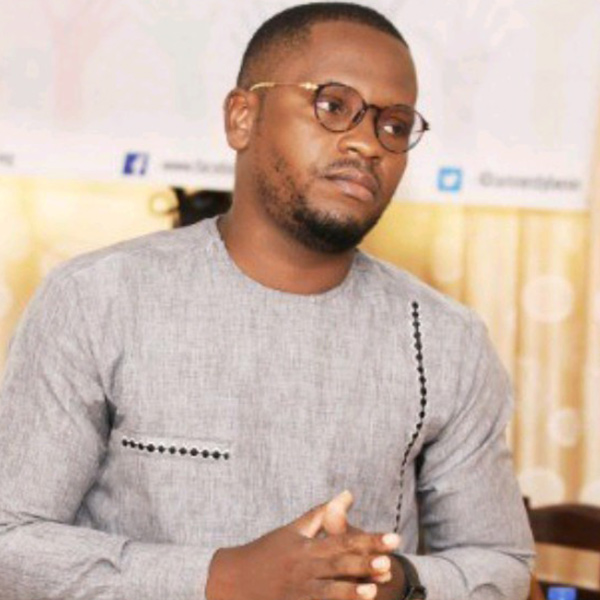
Harold Adjaho, Benin Chapter President
Security consultant and engineer Harold Adjaho joined the Internet Society Benin Chapter in 2015 and became chapter president in 2020.
Fearing an Internet shutdown during the 2021 presidential elections, the chapter proactively launched a campaign, reaching out to local and international rights organizations. They contacted local media, blasted #CoupezPasInternet (#DontCutTheInternet) social media messages, published an open letter, and publicized it through a Facebook live conference and Tweetup, garnering international media coverage. They later monitored Internet outages and saw no disruptions.
Strengthening the Internet
As the world evolves, Internet security and trust must keep pace. Telework, e-learning, telemedicine, online financial transactions, e-government, and online advocacy continued to grow in 2021. Cybercrime also went up—by a factor of six since the beginning of the pandemic, according to some estimates.
In response, the Internet Society shifted, too. We enhanced tools that empower people to protect their data, helped secure global routing, and, as always, safeguarded the bedrock of the Internet itself.
Protecting the Internet’s Core
The Internet has been surprisingly resilient during the upheaval of the past few years. In other words, it’s working exactly like it’s supposed to. To keep it this way, we’ve developed the Internet Impact Assessment Toolkit to see how a policy, business decision, or technology could affect the Internet.
In 2021, we added the Internet Impact Brief: a quick analysis to help make better decisions about the Internet—and decide if a deeper assessment is needed. With our community, we produced Internet Impact Briefs to look at emerging policies in: Asia, North America, Europe.
In Canada
We advocated against Bill C-10 (Online Harms Act) with a letter to the Prime Minister. This helped delay the bill’s consideration by committee, leading to its demise with the parliamentary cycle.
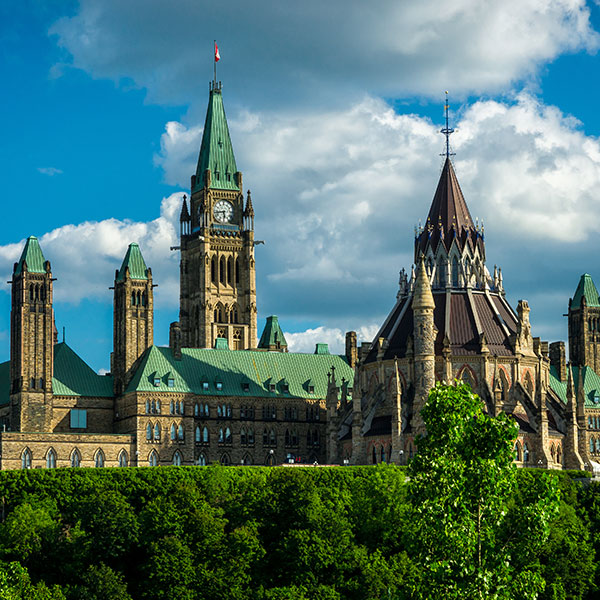
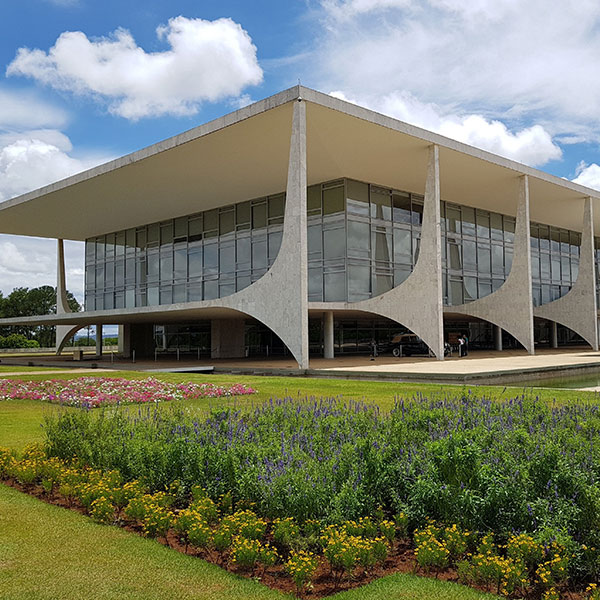
In Brazil
We advocated with chapters and partners against potentially damaging aspects of proposed legislation, contributing to the bill being repealed.
In Europe
We published a brief on the Revised Directive on Security of Network and Information (NIS2), which recommended removing from the directive the topic of root servers. We shared our findings with European Parliament policymakers, who ultimately voted to remove it.
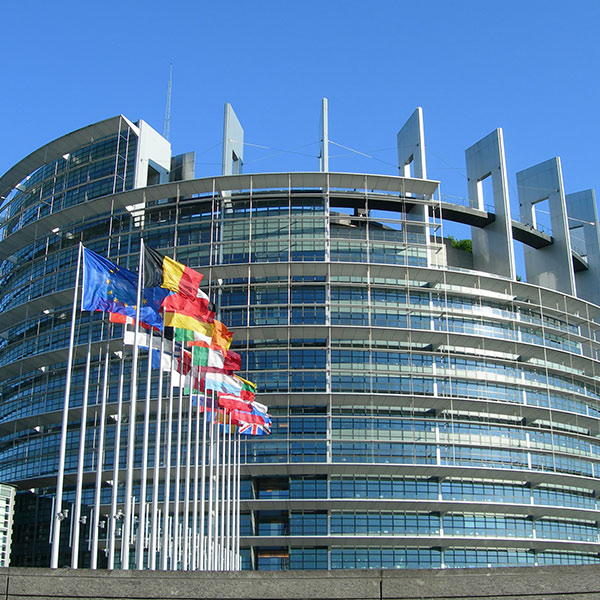
In 2021, Mutually Agreed Norms for Routing Security took many
steps to increase the long-term resiliency of Internet routing.
750
588
Number of participants
grown in one year
60+ Countries Represented
MANRS Launched:
Equipment
Vendor Program
Promotes routing security features on network equipment and provides support and training on how to use them
MANRS ROA
Stats Tool
Visualizes the state of the Resource Public Key Infrastructure (RPKI) to promote its security
Common ROA Management Requirements
and Security Standards for Operators of RPKI Services (ORS)
Provides guidelines for operators of RPKI services
MANRS for CDN
and Cloud Providers
Enhanced actions for content delivery networks and cloud operators
RPKI Week
More than 500 participants walked away from this first-ever event with even more knowledge and resources to help safeguard the Internet’s core
MANRS Ambassador Program
13
Guided 13 Fellows
60
Who delivered more than 60 regional training sessions
1,000
Which reached over 1,000 network engineers and administrators
In 15 countries across
6 continents
Spotlight Story
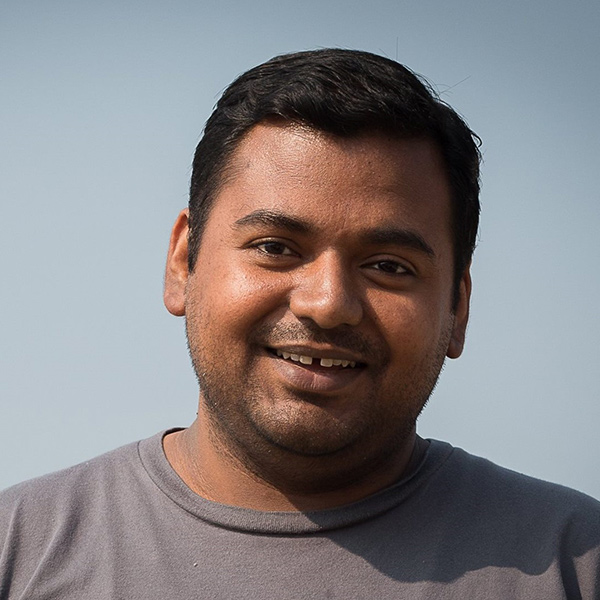
Zobair Khan, MANRS Ambassador 2021
Zobair Khan has had a lifelong interest in improving Internet security. He was active in three Network Operators Groups when he first heard about the Mutually Agreed Norms for Routing Security (MANRS) at a conference. A senior manager for Fiber@Home Limited, a Bangladeshi telecommunications network, Zobair dug in and adopted the norms for his company.
In 2021, he was selected as one of five MANRS Ambassadors. The ambassadors provide mentorship, training, guidance, and feedback to the global routing security community. Supervising six fellows, Zobair and the other ambassadors organized 47 different activities for nearly 1,600 network operators in 28 countries and regions.
Shielding Private Information
from Prying Eyes
Encryption helps keep our data secure and private. Because it’s essential to a trusted Internet, we work to protect encryption from harmful legislation and we urge people to safeguard their information by using it. Much of our recent activity has been done through the Global Encryption Coalition, an advocacy group we founded with partners Center for Democracy & Technology and Global Partners Digital.
In 2021, the Global Encryption Coalition more than doubled its membership, increasing from 120 to 256 members. We celebrated the first-ever Global Encryption Day in October 2021 to champion strong encryption, telling governments that weakening it puts people, communities, and entire nations at risk.
80+ Events Worldwide
Over 4 Million People Participated
The Global Encryption Coalition weighed in on European Commission consultations on the Commission’s draft strategy to protect children online. The draft included two proposals that would weaken end-to-end encryption. In response, the Internet Society organized a joint Global Encryption Coalition submission and hosted a webinar for small businesses on the importance of encryption in the European Union.
In addition, the Portugal Chapter led 12 European chapters in submitting a joint letter to the Commission, drafted a position paper, and did media outreach. They also held meetings with decision-makers, including the Portuguese presidency of the European Parliament. As a result of these advocacy efforts, the Commission has postponed any announcement of its planned strategy. In addition, crucial wins in member states have been bolstered by the new pro-strong-encryption stance of the German Government, creating a more favorable environment around encryption when discussions about the EU’s draft strategy resume.
Spotlight Story
Belgian Government Drops Encryption-Weakening Items from Its Data Retention Law after Internet Society Advocacy
In mid-2021, the Belgian government proposed a draft law on data retention in electronic communications that would force companies to decrypt end-to-end encrypted messages whenever requested by law enforcement.
The Internet Society and the Belgian Chapter mobilized a wide-ranging campaign to convince the Belgian Government to remove the anti-encryption text. The campaign consisted of an open letter that garnered 107 signatures, media outreach by the Belgian Chapter and other local allies which resulted in at least 40 articles in local media, and a staff member asking a pro-encryption Member of the European Parliament to speak to the Belgian Minister of Justice.
In October, the legislation was delayed. Two months later at a Federal Council of Ministers meeting, the government approved a version of the law that removed the backdoor requirement. It now says, “To promote digital security, the use of encryption is free.”
Our advocacy prompted the Belgian Justice Ministry to admit that law enforcement can’t access end-to-end encrypted communications without breaking the security of all users.
Ryan Polk Senior Policy Advisor at Internet Society
Empowering People to Take Action
The Internet’s resilience reflects the people who developed it—and the people who do something every day to strengthen it and keep it growing.
These people make up our global community, from individual members to chapters to partners to organization members to special interest groups. Each part of our community plays a vital role in keeping the Internet a force for good—through their passion, expertise, and drive.
Partnering to Change the
Internet for the Better
In 2021, we partnered with one of our organization members, LACNIC, and the regional LAC-IX to help upgrade the peering infrastructure at five IXPs. They gathered local and regional stakeholders, shared best practices, and provided capacity building and technical support.
Their involvement and support made it possible for the IXPs to grow. With their partnership, we were able to help IXPs across Latin America provide a better, faster, and more affordable Internet.
Partnering for Digital Equity
In 2020, we launched the Truist EPIC Grant with our partner the Truist Foundation, which offered funding for five diverse, low-income communities in the Southeast United States to connect to their own broadband networks. In 2021, the five communities created their own networks.
By early 2022, these communities will have access to a broadband Internet connection:
North Carolina
Wave 7 Communications
City of Wilson
Florida
Duval County Public Schools
City of Williston
Alabama
The Tuskegee Housing Authority
Nurturing and Making New Connections
Rose Croshier, a policy fellow at the Centre for Global Development in Washington, D.C., stumbled upon the Internet Society while doing research on developing countries’ use of space-based telecommunications. Inspired by our work, she decided to become a member. It just so happened to be during our first-ever Community Week, where she made new connections that will make a lasting impact.
“I got pointed in the right direction for references that I’m now using in my work. Some of the contacts I made during that community week are now some of my go-to people. It was just a great resource to trade information, gain a common understanding of key issues and counter-narratives, and to find out who is writing about it.”
She plans to remain a member for a long time, saying, “I’ll keep returning to [the] Internet Society, both to learn and contribute and to stay open to new ideas.”
Spotlight Story
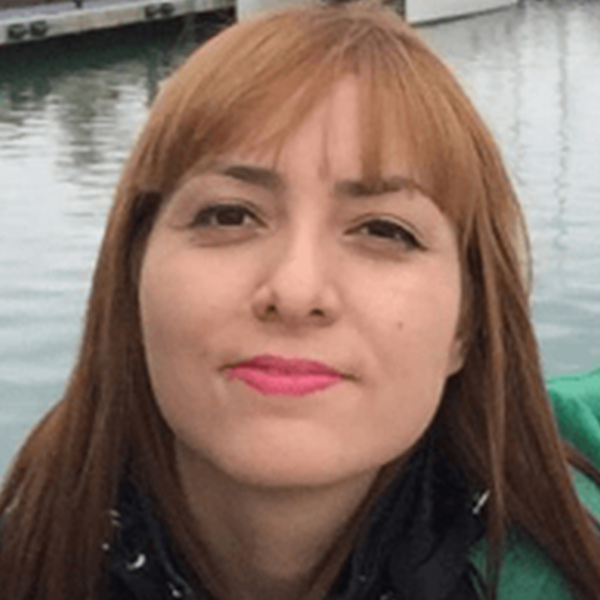
Eileen Cejas, Youth Special Interest Group Leader and Board Member
Eileen Cejas, a lawyer from Buenos Aires, has been an individual member of the Internet Society since 2014. Active in Internet governance, she has organized local Youth IGF events, served as an Internet Society IGF Youth Ambassador, and organized the Global Citizens Dialogue on the Future of Internet.
In 2021, Cejas ramped up her involvement. She organized a Youth Summit event in collaboration with the Youth Internet Governance Forum (IGF) Poland, teaching young people about Wikidata and encouraging them to engage on digital rights. She also became a mentor for the IGF Youth Ambassador Program in 2021. “The experience has been life-changing,” she says.
She now sits on the board of the Internet Society’s global Youth Observatory as regional engagement director for Latin America and the Caribbean, where her passion is helping create a new generation of Internet leaders.
Spotlight Story

Nojus Saad, Internet Governance Forum Youth Ambassador
Nojus Saad has made it his mission to promote the health and digital inclusion of women and disadvantaged communities. He founded the nonprofit, Youth for Women Foundation, in 2018. After he was selected for our IGF Youth Ambassador Program in 2020, he shifted the nonprofit’s focus toward digital health, literacy, and bridging the digital divide.
As part of the program, Saad received a US$10,000 grant to start digital literacy training for more than 80 underserved young people in Iraq. He also attended the 2021 IGF in Poland, where he was a panelist and advocated for digital health inclusion of marginalized groups. His work is being recognized in other ways, too. He won the Diana Award for his domestic violence campaign, became a senior Fellow at ICANN, and became a regional ambassador at the International Telecommunications Union.
Local Action. Global Change.
Chapters are central to our work, bringing together members to run programs and activities dedicated to making a difference locally, informing policy, and educating the public about Internet-related issues. In 2021, our chapters acted locally to help us advance our mission globally.
Conclusion
2021 was a banner year for strengthening and growing the tool we all have come to rely upon. As more changes take place around us at a whirlwind pace, the Internet remains a dependable landscape…for most of us. Protecting it, cultivating it, and allowing it to take shape in areas where access is limited or non-existent will remain our goal during the upcoming years.
From community network building in rural regions of the Americas to implementing IXPs throughout local areas in Africa, to improving routing security throughout the world, the Internet Society has pushed through policy, empowered people, and kept the Internet free and fair as it grows and faces new challenges.
With the world shifting, we must do more than cling to the Internet as it exists now. We must work to open access and reliability to those still in need. We don’t know what will come next, but we do know the Internet will always be a part of it. It remains steadfast, so we, too, can remain steadfast. In our mission. In our optimism. And in our actions.